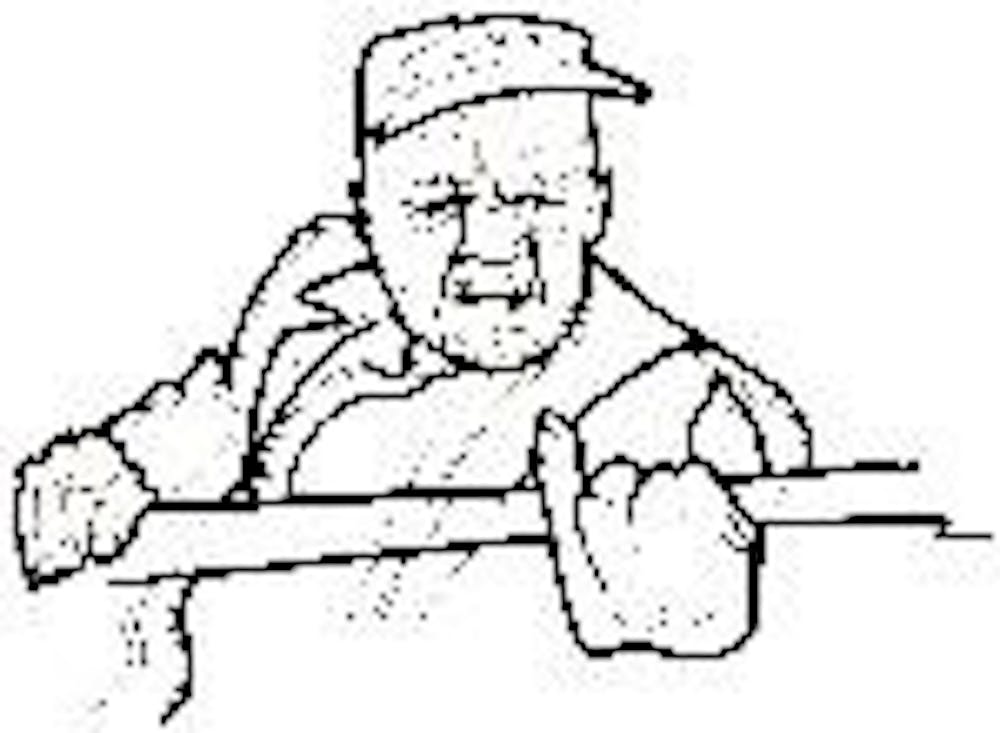
Two years ago on Easter I was sitting inside the Palace Theater in Cleveland, Ohio waiting for B.B. King to take the stage after an extended opening act. The room was crowded with people, many having come straight from church still dressed in their Sunday best, and the room was painfully hot. King responded to the tension. Working the crowd into a frenzy, he ripped through his set. At the peak of his playing, however, King stood up and waved 90-year-old blues guitarist Robert Lockwood Jr. onto the stage, stopping the show for several minutes to give the longtime fixture of the Cleveland blues scene his due. It was a fitting, if brief, tribute to the aging guitarist, and seemed to be a nod from one legend to another that Lockwood's legacy would be kept alive.
I first saw Lockwood about a year before the King concert at a small club on the corner of Prospect and Ontario called Fat Fish Blue. He would headline Wednesday nights backed by a six piece Chicago style band. Rounding out his '80s, Lockwood relegated himself mostly to rhythm guitar, comping jazz chords and playing the occasional solo when it suited his mood. Dressed in a suit and tie with his trademark driving cap, he would sit on the right side of the stage strumming away 'til the band broke for the night. That night, though, he decided to stay on and play a couple of songs by himself. Stepping back up to the stage with his bright blue, semi-hollow bodied 12-string, Lockwood finger picked his way through a series of Robert Johnson songs with the chilling feel of somebody who had lived them.
In order to understand Robert "Junior" and his legacy, you first have to be familiar with his "stepfather," the mythic 1930s bluesman Robert Johnson. Johnson was born in Mississippi in 1911, and while many of the details of his life remain hazy, his persona is epic. According to legend, Johnson was a struggling guitar player living on a delta plantation when he received instructions to take his guitar to a rural crossroads at midnight. There he supposedly made a pact with the devil, who tuned the guitar for him, and within a year Johnson's skill was unparalleled. Word of his virtuosity spread quickly, and as his fame increased, so did his reputation with the women. Shortly before traveling to New York City for his debut in Carnegie Hall, Johnson was murdered on the stage of a juke joint, probably poisoned by the husband of a woman he had been sleeping with. Onlookers testified that before he died, Johnson frothed at the mouth and ran around the room, snapping like a rabid hound dog on all four - the devil had cashed in.
Leaving only a brief legacy in the form of several recording sessions cut between 1936 and 1937 in San Antonio, the impact of Johnson's music was monumental. It not only influenced other delta musicians, but inspired post-war Chicago electric bluesmen and a generation of white rock 'n' rollers. First reinterpreted by the likes of Elmore James, Muddy Waters and Howlin' Wolf, it was Johnson's indelible impact on young guitar players such as Eric Clapton, Keith Richards and Duane Allman that drove the blues rock revival of the 1960s. Indeed, Cream's "Crossroads," the Rolling Stones' (who took their name from a Muddy Waters song) "Love in Vain," and Led Zeppelin's "Lemon Song" were all Johnson originals. Yet while these artists idolized Johnson's songwriting and intricate playing style, Robert Lockwood built off of Johnson's heritage firsthand, demonstrating a stunning mastery of his finger style approach and developing a unique jazz based electric sound that would become his hallmark as a group leader.
Only four years younger than Johnson, Lockwood was born in 1915 in the small town of Turkey Scratch, Ark. The 13-year-old Robert "Junior" was first introduced to Johnson when the budding star had an affair with Lockwood's mother. Learning how to play guitar from Johnson, Lockwood soon absorbed his style so well that onlookers at fish fries and juke joints had trouble distinguishing the guitarists. It was natural then, that after Johnson's death in 1938, Lockwood left Mississippi looking for work and drifted north, eventually winding up in Chicago. By the 1950s he was a lauded session musician for Chess records and backed tracks by blues legends such as Little Walter Jacobs and Sonny Boy Williamson II. At Williamson's suggestion, Lockwood moved to Cleveland in the '60s where he cut several great albums for the Trix label.
One night a couple of years ago when I was back in Cleveland, I went down to Fat Fish to see Lockwood and his band play their usual Wednesday night show. I sat down at a table off to the side of the stage and started talking with a local guitar player who was a Lockwood acquaintance. During the intermission Robert sat down with us and talked over drinks about the old days in Chicago with Muddy Waters and Little Walter. As he reminisced, he spoke about Robert Johnson's singing voice and spun tales about a band he had led in the early '50s with a young pianist named Ray Charles. Somewhat irritably Lockwood complained that years later Charles had snubbed him, only to show up at his house in order to apologize.
With Lockwood's death last November at the age of 91, the world has lost one of the few remaining pre-war delta blues musicians. And yet, his influence can still be heard whether you're traveling down Highway 61 through the oppressive heat of the delta or sitting at a small blues club in Cleveland.




